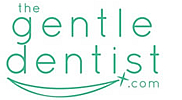Michigan Dentists Discuss Sterilization in Dental Offices
Dr. Apsey: Hi, I’m Dr. Greg Apsey, practicing dentistry in Warren, Michigan. Our office phone number is 586-587-3770. And you can find me on the web, drapseydds.com. This is my friend Dr. Robert Antolak.
Dr. Antolak: Hi and we’re located in Shelby Township, Michigan. Our phone number is 586-247-3500 and our website is thegentledentist.com. Doctor Apsey and I got together today and we are good friends and we’ve been, known each-other for almost 30 years. We’ve been in practice for 25 years, each of us. And we felt it was very important to discuss this issue that you may have heard about, which is the sterilization of the Tulsa Oklahoma surgeon and who could of contaminated up to 7,000 of his patients.
Dr. Apsey: Right the concern is amongst the patients is, is it safe to go and have dental work done? In this office there were supposed issues of cross-contamination, the spread of AIDS from the office to the patients, or a possible spread of AIDS and talk of rusty equipment; lack of protocol, of following protocol monitoring sterilization equipment. My understanding about the passage of HIV is that it has to be, it has to be from blood to blood contact. It’s not an easy disease to pass and if it indeed was passed by the dental office there is clearly lack of sterilization of the equipment.
Dr. Antolak: Yeah. And then I want to say too, is that the this is such a rare occurrence of this happening. So no matter where you go for your dental care, you have to know that you’re most likely, in fact dentistry is probably even more controlled than the medical community. So we follow proper protocol, for example all of our sharps we used one time, we take a needle its used one time and then disposed of and then that whole thing is managed by a waste management company for contaminated instruments.
Dr. Apsey: Anything plastic that goes into your mouth. Suction tips anything plastic covering, any barriers covering the chair or covering the handles of the lights are one time use only. The treatment room is scrubbed from top to bottom between patients every single time. The autoclave, the instrument that we use to sterilize the instruments, it must be monitored. We have a special strip, a spore strip we call it, that’s placed inside of the autoclave. Every 2 weeks, we run a spore trip in the middle of a densely packed autoclave and we send it to a lab and we test. And we are continuously monitoring to make sure that that autoclave is working properly so that there is no possibility of cross-contamination.
Dr. Antolak: That’s right. And what’s really important also is that our staff members are protected. You know, we want to follow what are called OSHA guidelines and CDC, which is Centers for Disease Control. They have certain standards to go by in practicing care. You know one thing you can do just as an observer to whatever dental practice you go in, look around at the environment. See if it’s dirty. If there’s cobwebs and stuff like that around, you can, maybe question that. I know in our office, many times I ask, so why are you here? I don’t like, it didn’t look clean, it looked dirty. You know, you have the right to ask, whatever your provider is, what you do to keep this area safe so I can have myself and my family and my friends go here. And I can refer them with confidence.
Dr. Apsey: In fact, my patients sit there sincerely, and I think in some ways, of course it’s horrible that this happened to so many people in Tulsa, Oklahoma. But this brings up the discussion. And I think the discussion should be regularly had between patients and doctors. There should be no fear in talking to your doctor directly about, what’s happening in the office and how safe you really are. I’ve had many of my patients come and they feel very comfortable talking with me and I’m very comfortable showing them all the things we do to keep them protected, keep them safe. I really believe in a healthy, clean environment, and my patients deserve that, they’re paying for that.We’re fellow human beings, we need to treat each other the proper way so.
Dr. Antolak: That reminds me of back in the late 80s, early 90s Acres was his name and he was an oral surgeon I think also. And he actually contaminated blood and injected into his patients. And that’s one of the first start of us using gloves, you know, gloves used one time, thrown away, right away, using masks, using eyeglasses to protect ourselves. And you know that was the first calling of it and that was way back quite a few years ago. But now this other incident has taken place. But between times the reality is this has not happened very often. It’s good to talk about it, it’s good to ask questions. If someone is defensive about the questions you have to likely you have to ask what their intentions behind it and how you are following protocol.
Dr. Apsey: And ask the question how are the hand pieces handled, the drills that are used in your mouth. Those drills are meant to be sterilized every time, after every use. They should be lubricated and sterilized every single time. And if they are not they’re being wiped down only, and there is some risk of cross contamination if they are being cleaned.
Michigan Dentists Discuss Sterilization in Dental Offices
Dr. Antolak: Yeah, so if you have any questions, you can contact Dr. Apsey’s office at 586-573-7700.
Dr. Apsey Or Dr. Robert Antolak’s office at 586- 247-3500
Dr. Antolak: You got it.
Dr. Apsey: Thanks for listening.

